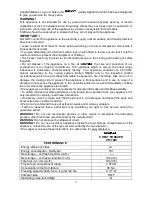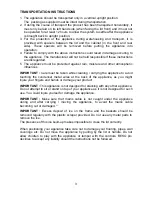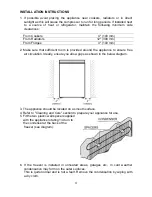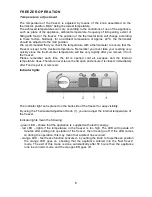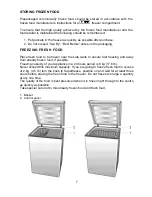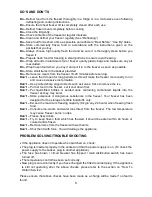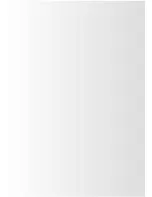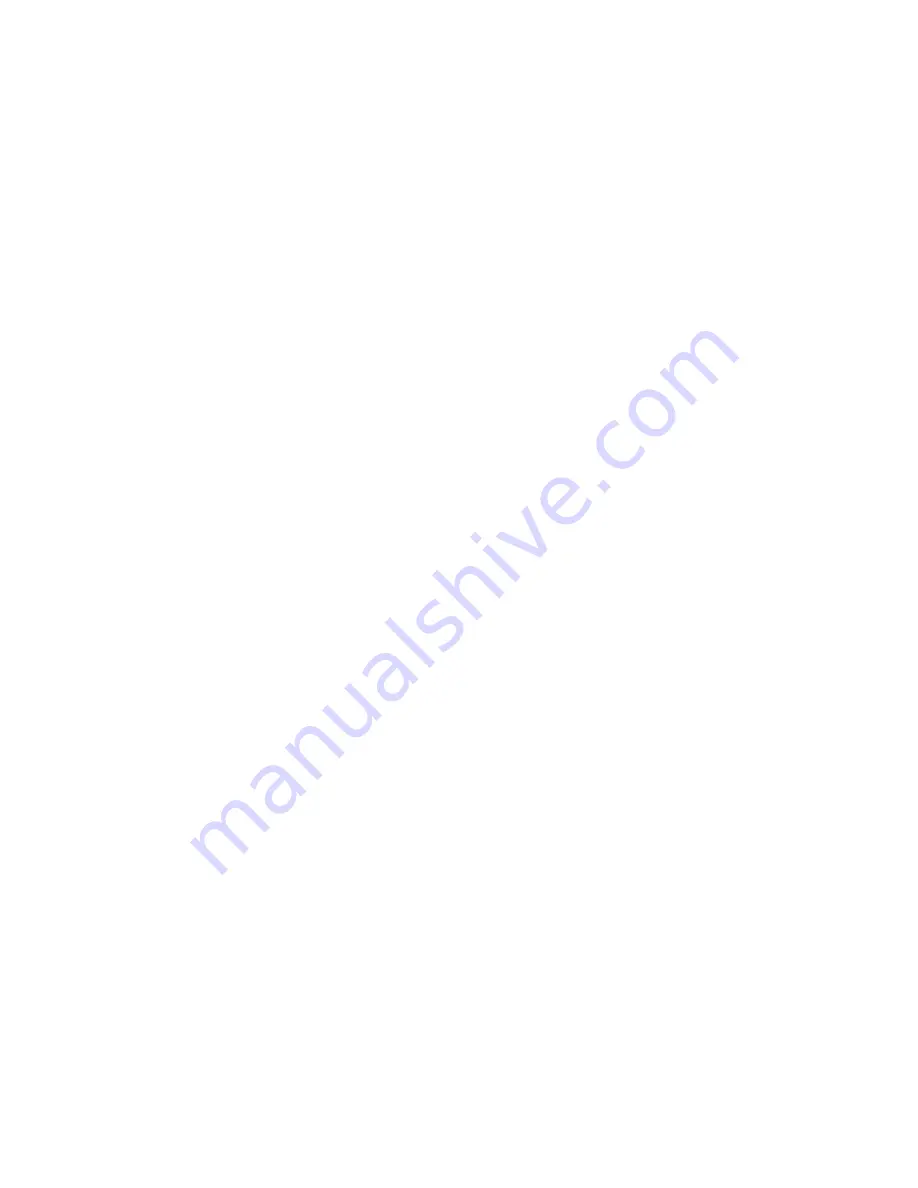
DO’S AND DON’TS
Do
–
Defrost food from the freezer thoroughly in a fridge or in a microwave oven following
defrosting and cooking instructions.
Do
–
Ensure that chest freezer lid is completely closed after each use.
Do
–
Defrost frozen meat completely before cooking.
Do
–
Close the lid gently.
Do
–
Check contents of the freezer at regular intervals.
Do
–
Clean and defrost your freezer regulary (See “Defrosting”)
Do
–
Keep food for as short a ti
me as possible and adhere to “Best Before”, “Use By” dates.
Do
–
Store commercially frozen food in accordance with the instructions given on the
packets that you buy.
Do
–
Always choose high quality fresh food and be sure it is thoroughly clean before you
freeze it.
Do
–
Prepare fresh food for freezing in small portions to ensure rapid freezing.
Do
–
Wrap all foods in aluminium foil or freezer quality plastic bags and make sure any air
is excluded.
Do
–
Wrap frozen food when you buy it and put it in to the freezer as soon as possible.
Do
–
Store small items in the basket provided.
Do
–
Remove ice cream from the freezer 10-20 minutes before serving.
Don’t –
Leave the lid open for long periods as this will make the freezer more costly to run
and cause excessive ice formation.
Don’t –
Use pointed sharp edged obiects such as knives, forks to remove the ice.
Don’t –
Put hot food in the freezer. Let it cool down first.
Don’t –
Put liquid-filled bottles or sealed cans containing carbonated liquids into the
freezer as they may burst.
Don’t –
Store poisonous or dangerous substances in the freezer. Your freezer has been
designed for the storage of edible foodstuffs only.
Don’t –
Exceed the maximum freezing capacity (8 kg in any 24 hours) when freezing fresh
food.
Don’t –
Consume ice-cream and water ices direct from the freezer. The low temperature
may cause ‘freezer burns’ on lips.
Don’t –
Freeze fizzy drinks.
Don’t –
Try to keep frozen food which has thawed, it should be eaten within 24 hours or
cooked and refrozen.
Don
’t –
Remove items from the freezer with wet hands.
Don’t –
Shut the lid with force. You will damage the appliance.
PROBLEM SOLVING/TROUBLE SHOOTING
If the appliance does not operate when switched on, check;
The plug is inserted properly in the socket and that the power supply is on. (To check the
power supply to the socket, plug in another appliance)
The fuse has blown / circuit breaker has tripped / main distribution switch has been
turned off.
The temperature control has been set correctly.
New plug is wired correctly if you have changed the fitted moulded plug. If the appliance
is still not operating after the above checks, please refer to the section on “How To
Obtain Service”.
Please ensure that above checks have been made as a charge will be made if no fault is
found.
9


